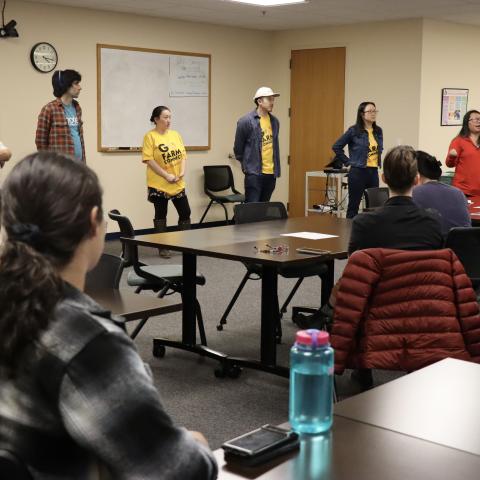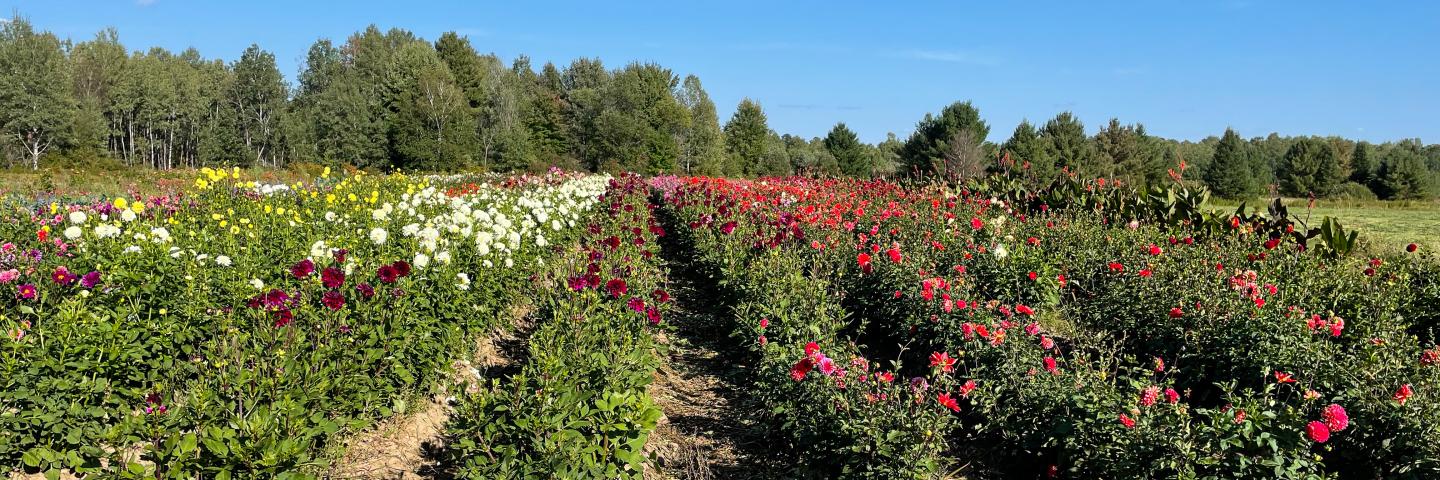
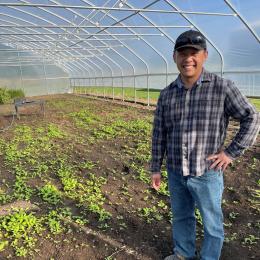
It feels so good to come to the farm and see things grow. Staring at screens all day can be exhausting. Coming to work on the farm is peaceful and relaxing.
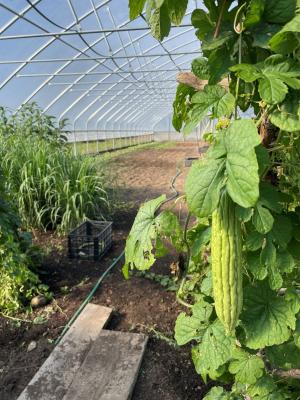
Before purchasing farmland in 2017 on School Road in Wausau, Wisconsin, Information Technology (IT) professional, Chor Lee, had never farmed. The property included 19 acres of plowed corn field, 67 acres of forestland, and a plethora of weeds growing out of control, but did not include electricity, running water, or any agricultural equipment. What Chor had in spades, however, was family members supportive of his new endeavor into farming. Chor first learned about technical and financial assistance programs available with the U.S. Department of Agriculture (USDA) Natural Resources Conservation Service (NRCS) through his cousin, KaYing Vang, NRCS District Conservationist for Pierce and St. Croix counties. Focusing on his ultimate objective to produce culturally relevant crops while farming “off-grid,” Chor applied for the Environment Quality Incentives Program (EQIP) to begin transforming his new property, now named School Road Farm, into a fully sustainable and streamlined growing operation.
In 2020, Chor received funding assistance through EQIP to build a High Tunnel System on the farm to stretch out the growing season from March to well past the average first frost date in September. But Chor's commitment to sustainable living has extended beyond his enrollment in NRCS programs. While the high tunnel structure helped protect his produce from the Wisconsin elements, he still needed to weigh his options when deciding how to get electricity to the property. He could pay to have an electric company run a power line and manage utility bills, or he could get creative with developing a more sustainable farming operation.
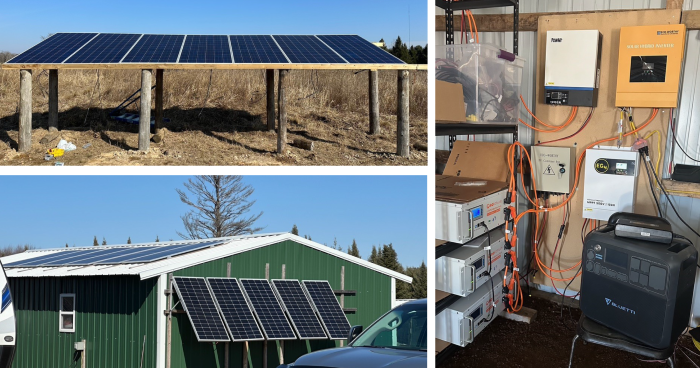
With a professional background in IT and affinity for technology in general, he opted to engineer a solar power system for the farm himself using parts purchased from online marketplaces and knowledge gained from YouTube. The innovative setup provides more electricity than his farm needs, making it a truly energy-efficient operation. “Visiting Chor was one of my favorite field visits of the year. He always had something new to show me. I learned from him every time,” said Amy Neigum, former District Conservationist in Marathon County who is now retired from NRCS Wisconsin.
Chor's parents assist with the farming operation, helping to grow an impressive variety of produce including snap peas, sweet corn, tomatoes, onions, potatoes, peppers, Bok choy, mustard greens, raspberries, asparagus, bitter melon, lemongrass, Thai chilis, red & green amaranth, mint, cilantro, dill, as well as many other vegetables, herbs, and their flock of chickens, ducks, and pigeons.
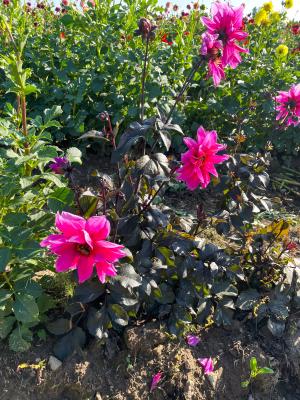
The family farm also grows several species of flowers such as zinnias, statice, sunflowers, and dahlias, including successfully cultivating the rare and unusual “Black Dahlia” known for its dark foliage. But Chor is exceedingly proud to have School Road Farm provide fresh, high-quality produce for the community at the Wausau Farmers Market. Even though he continues to work full time in IT, Chor says “it feels so good to come to the farm and see things grow. Staring at screens all day can be exhausting. Coming to work on the farm is peaceful and relaxing.”
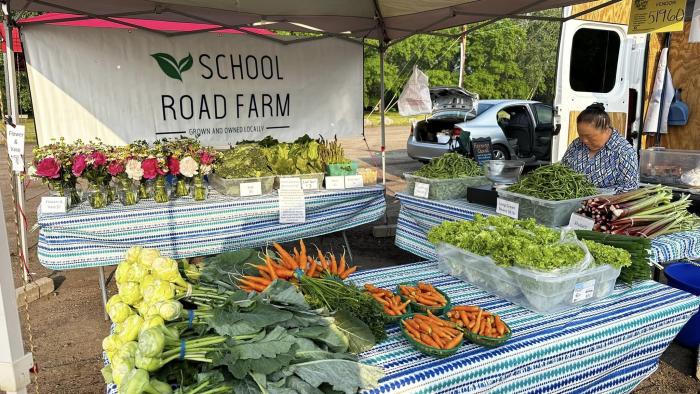
While he is grateful to have his parents’ help on the farm, Chor has also learned to manage School Road Farm the hard way— through trial and error. Support provided through the NRCS Conservation Stewardship Program (CSP) has allowed Chor to utilize cover crop planting for weed suppression. He has explored the use of snags, den trees, and coarse woody debris for wildlife habitat on his forested acres, as well as Upland Wildlife Habitat planting to benefit honeybees and other pollinators. He has found that the pollinator habitat sometimes acts as a lure for deer, which has been favorable to the farm’s bottom line as deer are typically drawn to browse heavily on the cultivated vegetables and flowers.
Chor's hard work and innovative approach has resulted in a successful farming operation that serves as a model for others in his community and beyond. After Chor discussed his off-grid farming operation with Andrew Bernhardt, an Agriculture Program Specialist with the Wisconsin Department of Agriculture, Trade and Consumer Protection (DATCP) at the Marbleseed Organic Farming Conference, Andrew helped organize a Hmong Farmer Workshop in collaboration with Addison Vang at the University of Wisconsin—Extension (UWEX), True Vue of the Eau Claire Area Hmong Mutual Assistance Association, Shawn Bartholomew of Chippewa Valley Produce, and Pa Thao, owner and operator of Maiv Flower Farm where the workshop was held. The workshop helped Hmong farmers learn how to generate electricity via solar panels and build a low-cost cooler to improve post-harvest handling, scale up production and access new wholesale markets.

Attendees came from Wausau, Baldwin, Eau Claire, Menomonie, Chippewa Falls, Madison, and St. Paul/Minneapolis for the opportunity to learn from Chor’s expertise and witness firsthand the benefits of solar energy with his demonstration of generated and stored electricity using two portable solar panels connected to a 1.5KW battery. The entirely wireless system connects to an app on an iPad that displays how much power the panels are producing and how much power is being use from electronic units plugged into the battery, which Chor demonstrated by powering some lights and a hair dryer for the workshop attendees. DATCP staff also lead a presentation and discussion on building a walk-in cooler system for small-scale vegetable producers, and Chor’s original connection to conservation practices through NRCS, his cousin Ka, presented an overview of EQIP and CSP in Hmong.
Through these efforts, Chor is not only fostering sustainability on his farm but also inspiring others to adopt similar conservation practices. He has proactively discussed his involvement with NRCS with other producers and families he knows, and many have enrolled in NRCS conservation assistance programs for their croplands, forested acres, and for support to construct high tunnels of their own. Since partnering with NRCS, Chor has been able to build an additional high tunnel and plans to add a third one in the summer of 2024. He plans to renew his two CSP contracts for another 5 years to help continue growing high quality produce while providing habitat for pollinators and wildlife and experiment with new techniques for weed control. With his passion for utilizing innovative technologies and techniques, Chor’s goal for School Road Farm is for the operation to be completely self-sufficient in the future. He hopes to inspire the next generation of beginning farmers by demonstrating both the everyday challenges and the interesting aspects of life on the unconventional farm.
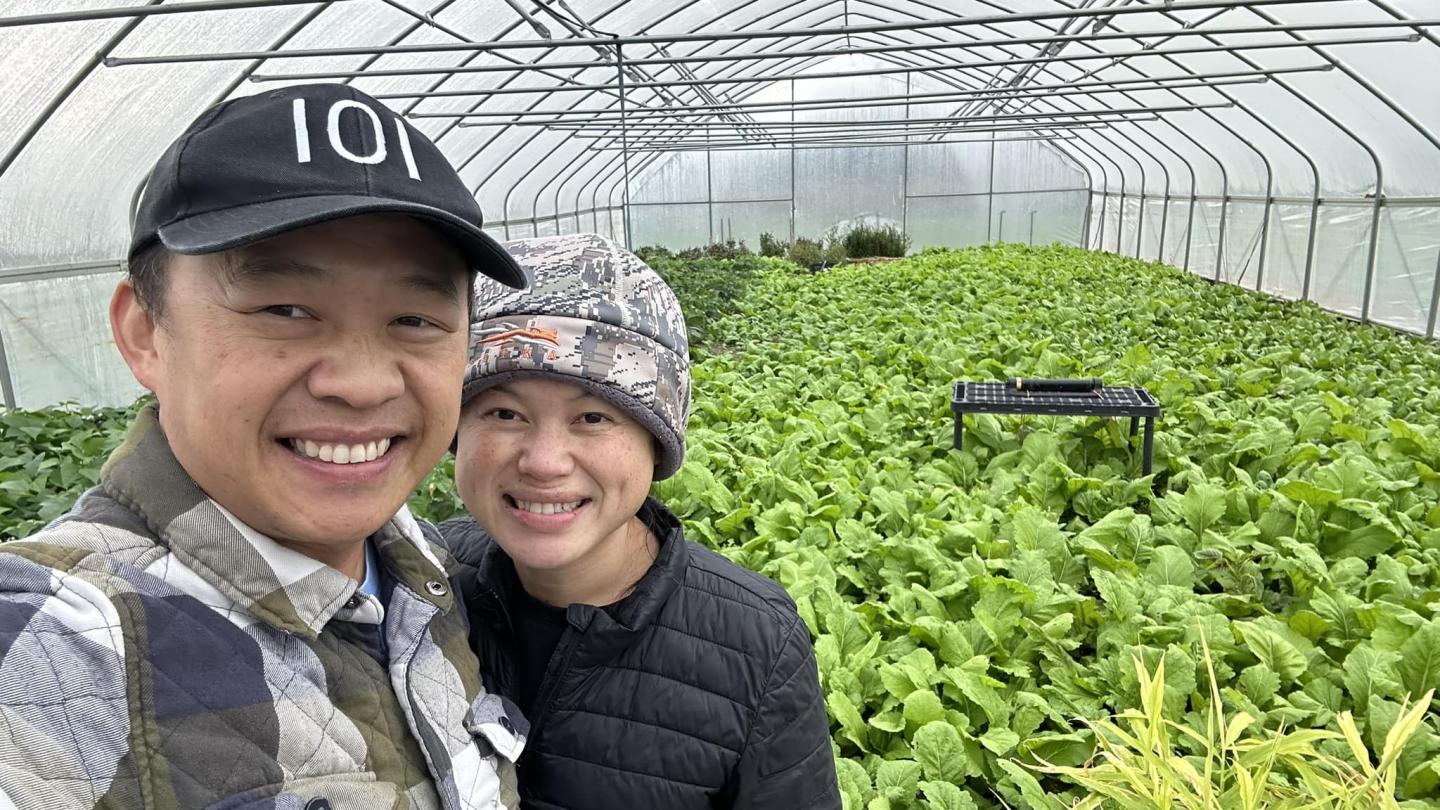
#
Are you a Historically Underserved Farmer or Rancher?
Some groups of people are identified in Farm Bill legislation and in USDA policy as being "Historically Underserved," or subject to discrimination in, Federal policies and programs. The four groups defined by USDA as Historically Underserved include farmers or ranchers who are: Beginning; Socially Disadvantaged; Veterans; and Limited Resource. Click here for more information on targeted opportunities available and how to receive assistance.


